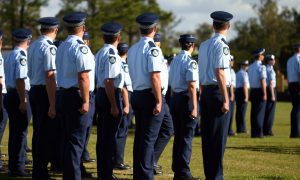Applying as a Tampa Police Department Police Officer
Job Description
Employees entering the Police class are required to complete a training period. Through this period, they will learn the responsibilities of protecting property and life, while also completing moderately difficult tasks regarding these.
After training, employees will perform police responsibilities related to the enforcement of state, local, and federal laws. Among these tasks would be accepting reports of public information, logging public complaints, and patrolling assigned areas by vehicle or on foot.
The police employee will be supervised by a police supervisor or sergeant, but will still be expected to be able to independently make decisions and exercise self-control, courtesy, and tact in all aspects of their duties.
Employees must also be ready for calm and swift decision-making, especially in dangerous or emergency situations. Other positions vary from field instructors to receiving additional training as pre-requisite to a special assignment or promotion.
As an instructor, they will supervise and train other officers. Many of the positions at hand will require night shifts, weekend shifts, and holiday rotations from the employee. The employee’s progress will be tracked through the submitted reports, results, and observations.
Expected Responsibilities and Duties
- Assignment to Districts:
- regular inspection of every area in district;
- thoroughly scrutinizing crime-prone areas;
- applying departmental regulations, as well as standard procedures to all situations;
- taking appropriate and prompt action against perpetrators caught in violation of the law;
- initiating an investigation of instances which need police involvement;
- ensuring the preservation of the scene of the crime;
- interrogating witnesses and involved persons;
- searching and arresting law offenders;
- appearing in court,
- documenting all relevant pieces of information;
- providing first aid; offering assistance to senile, disabled, and lost individuals;
- bringing stolen, abandoned, or lost property into police custody;
- enforcing traffic regulations;
- conducting accident investigations.
Assignment to Selective Enforcement Unit:
- participating in traffic and crowd control at large events;
- assisting in vice control for the enforcement and investigation activities;
- finding informants for current investigations;
- joining surveillance and stakeouts at sites of robbery targets and crime-prone areas;
- conducting of investigations of gambling, prostitution, and similar criminal activities;
- investigating business license applications;
- assisting the processing of permits for special events;
- processing of requests to employ officers for extra duty at alcohol establishments;
- collaborating with local, state, or federal agencies for joint activities and investigations;
- protecting dignitaries and political candidates.
Assignment to Marine Patrol:
- aiding of disabled passengers and vessels;
- patrolling of boat and sailing activities;
- maintaining police vessel and relevant equipment;
- enforcing city policy water laws;
- checking the safety of needed equipment for all vessels.
Assignment to information desk: checking vehicles in the database for stolen reports; providing general information to the public; verifying the ownership of vehicles in custody; authorizing the release of impounded vehicles; maintaining police records; creating copies of records and distributing them as necessary.
General tasks: Performing Department-related work as needed.
Required Qualifications
- At least 21 years old.
- Must be a citizen of the United States.
- Possesses a valid Florida state Driver’s License.
- Possesses a Certification as an Officer of Law Enforcement from the State of Florida.
Otherwise, must be attending and officially enrolled in a Basic Recruitment and Training Program of Law Enforcement abiding by the standards of Florida Criminal Justice. Cannot have any tattoos on portions of the body which will be visible in public on duty while wearing the regular police long-sleeved uniform.
Must have fully and successfully complete training in vehicle operations, firearms, and defensive maneuvers and tactics. (The applicant must present proof of completion from the Basic Recruit Training as well as proof of a passing score on the Certification exam for Florida State Law Enforcement.)
In the instance that the applicant is not of the state, candidates for Military Police and Officers must present an Equivalency for Certification. Applicants may contact the Law Enforcement of the Florida Department via 850/410-8600 or by visiting their website at http://www.fdle.state.fl.us/CJSTC/Officer-Requirements/Equivalency-of-Training.aspx for additional information regarding the process for Equivalency of Training.
Minimum Education and Work Experience Requirements:
Associate’s Degree and or 2 completed years of college at a university or accredited college (at least 90-quarter or 60-semester hours)
OR
A high school diploma with at least three years of experience in law enforcement or at a medium or large department in corrections
OR
A high school diploma with at least three years of active and full-time military experience
OR
A high school diploma with at least five years of Tampa Police Department Reserve Force experience
OR
Any combination of experience in related work or TPD Reserve Force preceded by a college education.
Documents for Application:
Certificate of Compliance given by State of Florida for a Law Enforcement Officer
OR
If the applicant is currently enrolled in a Justice Standards-approved Law Enforcement Basic Recruit Training Program, the applicant must submit the following:
- Letter of Good Standing written by or authorized by the academy director. The document must indicate the predicted completion and graduation date of the FBAT or Florida Basic Abilities Test as well as the FDLE PAT or Physical Abilities Test. The applicant must attain a passing score in both tests.
- Military Discharge or DD214 (if applicable)
- Birth Certificate
- College Transcript or High School Diploma
- Valid Driver’s License issued by Florida State
Please keep in mind that applicants cannot finish their application as Police Officer unless they comply with all of the required documents. All documents must be submitted to the City of Tampa Employment Services Office.
Certifications or Licenses
- Required possession of a valid driver’s license issued by Florida State
Special Qualifications
- A citizen of the United States
- Minimum of 21 years old
- Must pass a drug test as well as a medical examination
Require Examinations
- PAT or Physical abilities Test
- Polygraph-assisted Background Investigation
- Evaluation of past experience and prior training
Chosen applicants must undergo the following:
- Pre-employment Drug Test (Officers will undergo random drug testing throughout their employment at the Police Department of Tampa)
- Medical Examination to be administered by designated physicians from the City
- Psychological Examination
Qualifications
Age:
Must be 21 years of age
Citizenship:
Must be US Citizen
Certification:
State of Florida Law Enforcement Officer Certification -or- current enrollment in a Commission-approved Law Enforcement Basic Training Program.
Out-of-State Officer Lateral Transfer Applicants:
Education/Work Experience: (any one of)
Associate’s degree or equivalent or completion of two years of college (60 semester hours or 90 quarter hours). College, University or Community College must be accredited by the Southern Association of Colleges and Schools, another regional accrediting agency, or the Accrediting Commission of Independent Colleges and Schools. -OR-
High School diploma and three years of prior law enforcement experience with an agency of medium to large size (50 or more officers). -OR-
High School diploma and three years of military experience. -OR-
High School diploma and five years experience with the Tampa Police Department Reserve Force.
Other Requirements:
Valid Florida Driver’s License
Must have Social Security number
Be of good moral character: No felony arrests or misdemeanor convictions involving moral character, domestic violence, perjury or false statements.
Field Training and Evaluation Program Background
The Tampa Police Department Field Training & Evaluation Program was modeled after the original program created by the San Jose Police Department. The goals set forth are to give systematic, consistent and standardized training to all of the Probationary Officers (POs), who complete the sixteen week course. The ultimate goal of the program is to have the probationary officer capable of working by themselves as a one-person unit at the completion of their sixteen week program.
After completion of the Police Academy and upon appointment by the Tampa Police Department, the Probationary Officer’s first six weeks will be in “Holdover” for classroom orientation and scenario based training. Next, the Probationary Officer is assigned to a Field Training Squad within a Patrol Division. The members of the Training Squads are Field Training Officers (FTOs) who have volunteered to train new officers in conjunction with their normal police duties. To become an FTO, officers must complete a state accredited forty-hour field training officer course, before being allowed to train. The Tampa Police Department currently has eight training squads allotted to the patrol divisions.
Upon arriving for their first roll call, Probationary Officers are assigned to their Phase I Field Training Officer. Their first two weeks will be an observation period in which they will ride with the Field Training Officer, but will not be graded on their performance on the street. This period is designed to acclimate the Probationary Officer to their new surroundings. They will, however, be graded on weekly written tests (given throughout the program) which cover operating procedures and state statues.
After completion of the observation periods, the Probationary Officer begins the actual evaluation program, which is divided into three, four week phases, followed by a final two-week phase (Phase IV). During these four phases they are graded daily in twenty-seven performance categories along with their weekly written tests. These twenty-seven categories fall under five general areas which are (1) performance tasks, (2) communication skills, (3) knowledge, (4) attitude/relations and, (5) appearance. These categories are noted on a daily observation report.
In each of the first three phases of the program, the Probationary Officer is assigned a new Field Training Officer. This is to ensure the Probationary Officer receives a more rounded view of police work through the abilities and expertise of several officers. It also ensures their abilities are being graded impartially, by eliminating the human aspect that might be given through just one Field Training Officer. During the first three phases the objective is to take what the Probationary Officer has learned in the Academy, and combine it with their new training and street experience.
At the end of Phase III, the Program Supervisors (using the daily observation reports, written test scores and input from the Field Training Officers), decide if the Probationary Officer should be allowed to enter Phase IV or be extended for additional training. Once entering Phase IV, the Probationary Officer is returned to their Phase I Field Training Officer who is now able to grade them on how well they have progressed since Phase I. In Phase IV, the Probationary Officer is expected to perform as a one-person unit, with the Field Training Officer present only for grading purposes. After the successful completion of Phase IV, the Probationary Officer is now assigned to a regular patrol division squad as an Officer. They are placed on a probationary status and receive bi-monthly evaluations until their first year anniversary.
Prior Experience Officers
The Tampa Police Department often hires Officers who have previous experience at other law enforcement agencies. These Officers start at Phase I and after completion can be accelerated directly to Phase III if performing at an acceptable level. By skipping Phase II and shortening the program by four weeks, qualified officers with previous experience may be assigned as one-person units more rapidly.







